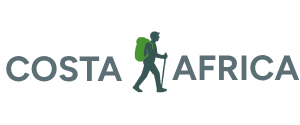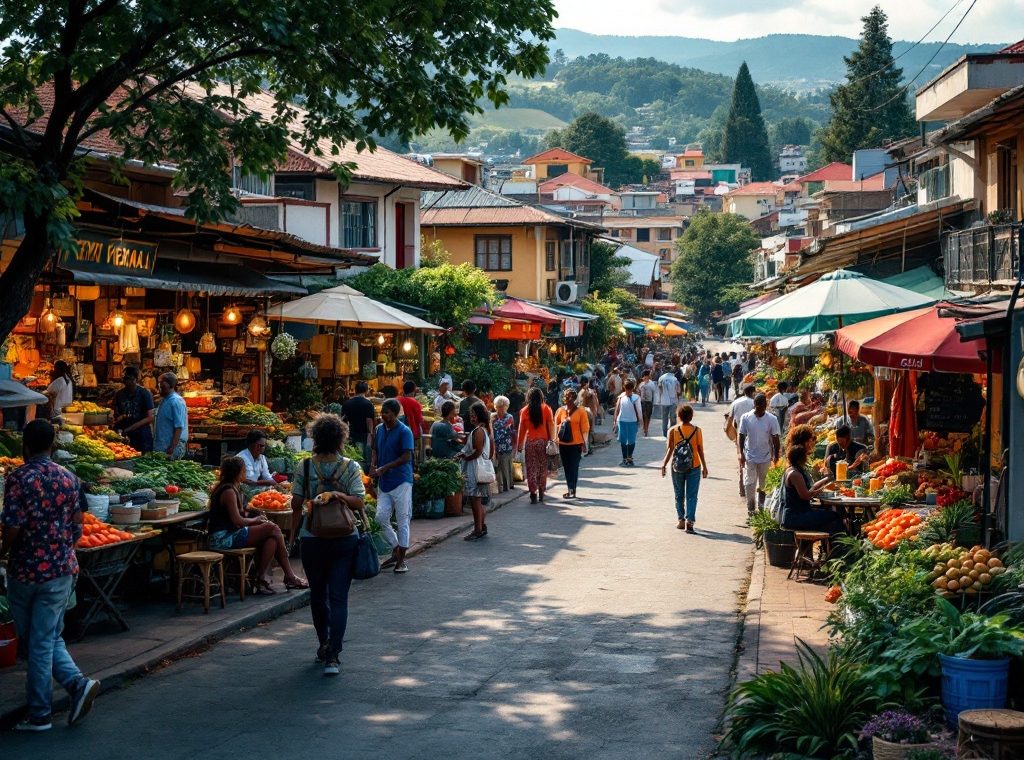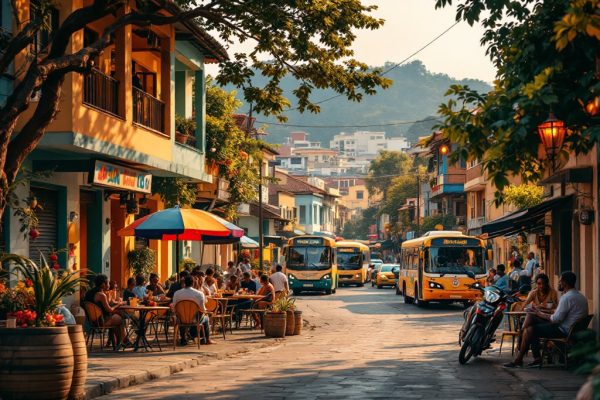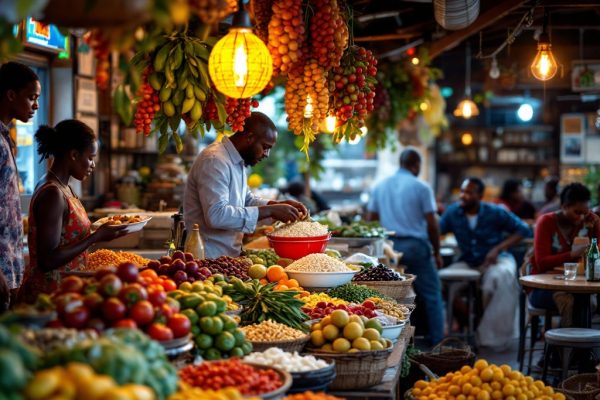Cost of Living in Rwanda: Everyday Life Budget Planner
Dreaming of a life in the heart of Africa? Discover the surprisingly affordable cost of living in Rwanda. From bustling Kigali to tranquil rural areas, experience a comfortable lifestyle for $500-$800 per month for singles or $1,500-$2,500 for a family of four. Learn how to navigate expenses like housing, food, transportation, and more, and unlock the secrets to thriving in Rwanda on a budget. Start planning your Rwandan adventure today!
Important information
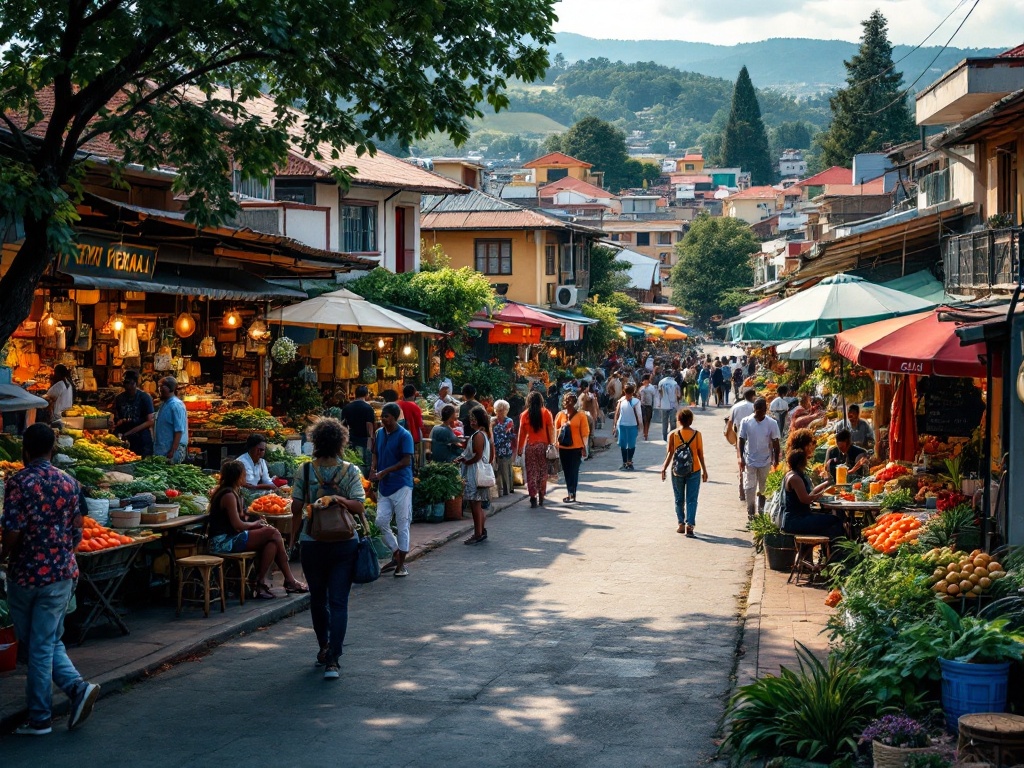
- The cost of living in Kigali, Rwanda, is lower than in Western countries, but higher than in some neighboring East African nations.
- A single person can live modestly on $500-$800 per month, while a family of four needs $1,500-$2,500 monthly for a comfortable lifestyle.
- Rent for a one-bedroom apartment in Kigali ranges from $200-$400 outside the city center and $300-$600 in the city center.
- Utilities (electricity, water, garbage) cost $30-$60 per month, and internet access is between $30-$100 monthly.
- Public transport is affordable with buses costing $0.50-$1 per ride, and monthly passes available for $20-$50.
Understanding the Cost of Living in Rwanda
Cost of living in Rwanda is generally lower than in Western countries, but varies based on location and lifestyle. Urban areas, especially Kigali, tend to have higher prices than rural areas. Key expenses include accommodation, food, transportation, and healthcare. A single person living modestly can expect monthly expenses between $500 and $800, while a family of four needs around $1,500 to $2,500 for a comfortable life. The average net monthly salary is 330,000 RWF (Rwandan Francs). A moderate lifestyle in Kigali averages approximately $1,466.77 per month. Don’t forget additional costs like internet, mobile phone service ($30 to $100 monthly), entertainment, leisure activities, and education.
Estimated Monthly Expenses
- Single person (modest lifestyle): $500 – $800.
- Family of four (comfortable lifestyle): $1,500 – $2,500.
Key Expenses
- Accommodation.
- Food.
- Transport.
- Healthcare.
- Internet.
- Mobile phone.
- Entertainment.
- Leisure.
- Education.
Currency: Rwandan Franc (RWF)
Rwanda’s official currency is the Rwandan franc (RWF).
Affordability and Purchasing Power
Kigali offers a relatively affordable cost of living, with a purchasing power of 17.16. A minimum monthly budget of around $500 covers basic needs. For a more comfortable lifestyle, a budget between $800 and $1,200 is recommended. This allows for more flexibility, including dining out, entertainment, and unexpected expenses.
Estimated Monthly Costs in Kigali
A family of two can expect monthly expenses of about $1,466.77 in Kigali. This covers essential costs such as housing, food, and other necessities. Utilities like electricity and water typically cost between $30 and $60 per month. Internet access falls within a similar price range. A more luxurious lifestyle would require additional funds.
Kigali Cost of Living Index and Statistics
Kigali provides a secure and pristine environment with surprisingly manageable traffic, registering a traffic index of just 46.17. Internet connectivity is dependable, with average download speeds of 20.4 Mb/s and upload speeds of 4.6 Mb/s. While living expenses are lower than in Western countries, they are higher compared to some neighboring East African nations.
One-Bedroom Apartment in Kigali’s City Center
Rent ranges from $300 to $600 per month.
Similar Apartment Outside the Center
Rent costs between $200 and $400 monthly.
Economical living is achievable in Kigali.
Individuals
A comfortable lifestyle is possible with a monthly budget of $500 to $800. Basic expenses may require $600 to $1,000.
Families
A monthly budget between $1,500 and $2,500 is recommended.
Monthly Budget for a Family of 2
A family of two in Kigali, Rwanda, can expect monthly essential living costs between $500 and $1,000. Groceries typically cost $100 to $200, while dining out averages $5 to $10 per meal. Other expenses include housing, transportation, utilities, and leisure activities.
Minimum vs Comfortable Budget
Living in Kigali, Rwanda on a budget is possible, even on $500 a month with careful planning and resourcefulness. However, for a more comfortable lifestyle with greater flexibility, a monthly budget of $800 to $1,200 is recommended. This allows for more diverse dining and entertainment experiences, ultimately enriching your time in Kigali.
Housing Costs in Rwanda
Finding the perfect rental in Rwanda depends heavily on location. City center apartments offer convenience but come at a premium, with monthly rents generally ranging from $300 to $600. If you’re on a tighter budget, venturing outside the city limits can yield significant savings. Rent in these areas often falls between $200 and $400 per month. Several factors influence the overall cost, including the size of the apartment, available amenities, and the specific location within a neighborhood. Beyond the monthly rent, be prepared for upfront costs such as a security deposit and the first month’s rent. Additionally, factor in the expense of furnishing the apartment and purchasing any necessary appliances.
Rent Prices: City Centre vs Outside Centre
The average rent for a one-bedroom apartment in Rwanda’s city center is 648,036 Rwandan francs (RWF). This higher cost is due to the convenience of city center living, with easy access to amenities such as restaurants, shops, and public transport.
Outside the city center, rent for a similar one-bedroom apartment drops significantly to around 383,873 RWF. This substantial price difference makes living outside the urban core a more affordable option, though it may require trade-offs in terms of easy access to certain amenities.
Apartment Prices and Real Estate
Apartment costs in Rwanda vary significantly depending on location. One-bedroom apartments in the city center generally have higher prices. More affordable options are readily available in surrounding areas. Rwanda’s real estate market offers a diverse range of properties, from downtown apartments to suburban homes and various other housing types.
Upfront Costs and Home Goods
When renting in Rwanda, expect to pay a security deposit and the first month’s rent upfront. Additional fees might be required depending on the landlord and the specific property. Furnishing your new place will involve purchasing essential items. These may include furniture, kitchenware, and appliances. Prices for these items can fluctuate. Locally made products tend to be more budget-friendly than imported ones. Check out local markets for excellent deals.
Food and Dining Expenses
Stretch your budget by purchasing staples like milk, bread, eggs, chicken, and rice at local markets. Groceries typically cost between $100 and $250 per person monthly.
Local cuisine offers significant savings compared to Western options. Restaurant meals usually range from $2 to $10.
Even small expenses like coffee can add up.
Imported goods and upscale dining are more expensive.
Grocery Prices: Milk, Bread, Eggs, Chicken Fillets, Rice
Grocery shopping in Rwanda can be surprisingly affordable. A gallon of milk costs 3,635.43 Rwandan Franc (RWF). A one-pound loaf of fresh white bread is only 1,366.83 RWF. A dozen eggs costs 2,265.26 RWF. One pound of chicken fillets is priced at 2,712.50 RWF. A pound of white rice is 784.45 RWF.
- milk (1 gallon): 3,635.43 RWF,
- fresh white bread (1 lb): 1,366.83 RWF,
- eggs (1 dozen): 2,265.26 RWF,
- chicken fillets (1 lb): 2,712.50 RWF,
- white rice (1 lb): 784.45 RWF.
Meal Costs at Restaurants
Dining in Rwanda offers options for every budget. A casual meal can cost around 4,250 Rwandan Francs. For a more upscale three-course meal for two, expect to pay around 40,000 Rwandan Francs. To save money, explore local markets brimming with affordable fresh produce and other staples.
Eating Local Food vs Western Food
Local Rwandan food offers significant value, being much cheaper than Western options. This makes it perfect for budget travelers. Many visitors and residents embrace the cuisine, appreciating its delicious flavors and affordability.
Cost of Coffee and Beverages
Planning your dining budget in Rwanda? Consider these average drink costs: a cappuccino will set you back 3,213.48 Rwandan francs (RWF), while a local beer is a more budget-friendly 1,500 RWF. If you prefer imported beer (12 oz), expect to pay around 3,000 RWF.
Transportation Costs
Getting around Rwanda offers a variety of choices to suit your needs and budget. Public transport is a readily available and economical option. Buses are a common sight, with fares typically ranging from $0.50 to $1. Moto-taxis offer another convenient alternative, costing slightly more between $1 and $5 depending on the distance. Taxis are also available, and fares within Kigali usually fall between $5 and $15.For travelers looking to maximize their budget, a monthly public transport pass can provide significant savings. While finding information about these passes can be challenging, the final cost typically ranges between $20 and $50, depending on individual travel frequency and distance.If you’re considering car ownership in Rwanda, be sure to factor in associated expenses like gas, insurance, maintenance, and parking. While gas prices tend to be lower than in Western countries, they can still fluctuate.
Public Transport
- Buses: $0.50-$1,
- Moto-taxis: $1-$5 (depending on distance),
- Taxis (Kigali): $5-$15.
For budget travelers, monthly passes ($20-$50) offer additional savings.
Car Ownership
Factor in costs for gas, insurance, maintenance, and parking. Gas prices are generally lower than in Western countries but can vary.
Local Transport Options: Bus, Moto-Taxis, Taxis
Getting around Kigali is easy with several transport options. Buses offer affordable travel between cities and towns, with fares typically between $0.30 and $1.00. For shorter trips within the city, moto-taxis are a popular choice, costing $1 to $3. Taxis are also readily available.
Public Transport and Monthly Pass
Public transport in Rwanda is easy on the wallet. Even better, a monthly pass offers significant savings. Individual fares typically range from $0.30 to $1.00 within the city. With a monthly pass, costing between $50 and $150 depending on travel frequency, regular commuters can drastically reduce their transport expenses.
Car Ownership and Gasoline Prices
Car ownership in Rwanda comes with expenses like fuel, impacting your transportation budget. Therefore, budgeting is essential.
Utilities and Internet Costs
Utility costs in Rwanda are generally affordable. For basic utilities such as electricity, water, and garbage collection, you can expect to pay between $30 and $60 per month. Internet service is also reasonably priced, ranging from $30 to $100 monthly depending on the chosen speed and data allowance. Larger households may incur higher utility bills due to increased consumption. Similarly, frequent internet users might opt for more expensive, higher-tier plans.
Basic Utilities: Electricity, Water, Garbage
Utility costs in Rwanda are generally affordable, typically ranging from $30 to $60 per month. This covers essential services such as electricity, water, and garbage collection.
Internet Costs and Broadband Speeds
Internet service has become a standard household utility, like electricity and water, with recurring costs. While broadband offers an average download speed of 20.4 Mb/s, uploads are significantly slower at just 4.6 Mb/s. This difference is worth noting.
Additional Living Expenses
Living in Rwanda involves expenses beyond rent, groceries, and transport. Consider additional costs such as fitness, childcare, and leisure. Internet and mobile phone plans typically cost between $30 and $100 per month. Entertainment costs vary greatly. School fees depend on the institution. Careful budgeting is essential to manage these cumulative expenses.
Fitness and Leisure
Gym memberships and cinema trips contribute to your monthly spending. Plan your leisure activities according to your budget.
Childcare
Childcare can be a significant expense, so factor it into your financial planning. Research different childcare options and their associated costs.
Fitness Club Fees and Sports Leisure
Fitness club memberships in Kigali, Rwanda, typically range from 15,000 to 75,000 RWF per month, offering various options. For those who prefer sports and leisure activities, alternatives like basketball teams and yoga classes are available. These options typically cost between 5,000 and 20,000 RWF per session or month, providing greater flexibility.
Childcare and Preschool Costs
Childcare and preschool costs in Rwanda depend on several factors. Location is a key factor, along with the facility type and program offered. Public preschools are generally the most affordable, while private preschools are more expensive. International schools, which often offer bilingual or multilingual programs, tend to have the highest fees. Many facilities offer flexible scheduling, such as half-day or full-day programs, influencing the overall cost. Parents should research and compare various programs to find the best fit for their needs and budget. Here’s a breakdown of factors influencing childcare costs:
Location
Prices differ between urban and rural areas, with urban areas typically having higher costs due to increased demand and operating expenses.
Facility Type
Public preschools are generally the most affordable, followed by private preschools. International schools tend to have the highest fees.
Program
The type of program, such as bilingual, multilingual, or special needs programs, can affect the cost. Full-day programs are typically more expensive than half-day programs.
Additional Services
Extra services like meals, transportation, and extracurricular activities can add to the overall expense.
Finding the right childcare involves considering these factors and comparing different programs to find the optimal balance of quality and affordability.
Entertainment and Leisure Activities
Entertainment and leisure activities significantly impact the cost of living in Kigali. These include dining out, recreational pursuits, and cultural experiences. Prices vary, but all contribute to monthly expenses. For example, a nice dinner can be costly. Similarly, regular cinema or theatre visits affect your budget. Therefore, leisure choices play a crucial role in Kigali’s overall living expenses.
Salaries and Financing in Rwanda
Navigating Finances in Rwanda: A Guide to Salaries, Mortgages, and BudgetingUnderstanding local salaries and financing options is key to effective budgeting in Rwanda. Net monthly salaries typically range from $300 to $1,000, influenced by profession and experience. While generally lower than Western salaries, access to financing, such as mortgages, is readily available through Rwandan banks and financial institutions. Interest rates for these loans are usually between 15% and 20% annually. Thorough research on local wages and available financing options is crucial for sound financial planning in Rwanda.
Average Monthly Net Salary and Local Wages
The average monthly net salary in Rwanda is 330,000 Rwandan Francs (RWF). Many Rwandans consider 200,000 RWF a decent wage, suggesting a lower cost of living than the average salary might imply.
Mortgage Interest Rate and Financing Options
Buying a home in Rwanda begins with understanding mortgage interest rates. These rates vary based on factors like the lender, the loan term, and your credit history. Mortgages and personal loans can finance your purchase, but they have distinct terms and conditions. Comparing offers from various banks and lenders is crucial for securing the best deal and achieving your homeownership dreams. Here’s a breakdown of the process:
Research Interest Rates. Begin by researching current mortgage interest rates in Rwanda. Understand how factors like loan term and credit score affect these rates.
Explore Loan Options. Explore different loan options, including mortgages and personal loans, and understand their respective terms and conditions.
Compare Offers. Compare offers from various banks and lenders to find the best interest rates, loan terms, and other conditions.
Secure the Best Deal. Secure the best deal that aligns with your financial situation and homeownership goals.
